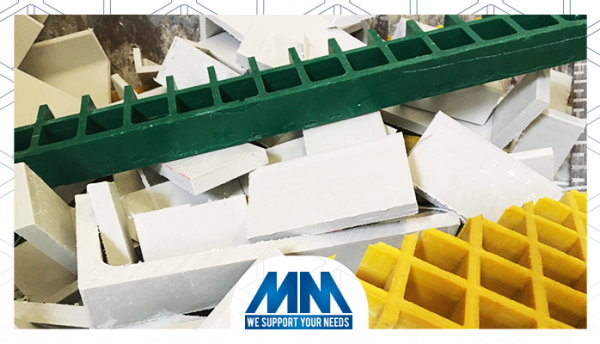Composite materials provide solutions for mechanical strength and protection in many market segments. These are transportation, electrical, building and infrastructure, industrial and energy.
First of all composite materials provide solutions for mechanical strength and protection in many market segments. These are transportation, electrical, building and infrastructure, industrial and energy.
These materials have a track record of providing useful benefits. There are high durability, mechanical performance, design freedom, low weight, and ease of manufacturing.
Composites can be easily recycled.
Additionally, composites have demonstrated to often have a better Ecological footprint, in comparasion with traditional materials like steel, aluminium and concrete.
The following brochure provides an insight into the established recycling routes for composites, and their positive impact on the environment.
https://eucia.eu/userfiles/files/20130207_eucia_brochure_recycling.pdf
Recycling of Composites makes business sense and it is environmentally beneficial
Also the recycling of glass fibre reinforced thermosets has been studied extensively since many years. For the reason that, three recycling technologies have been researched and yield potential waste management solutions: material recycling, chemical recycling and co-processing.
Co-processing composites through the cement kiln route is considered the best recycling option (Reference: Joint industry position paper on Glass fibre reinforced thermosets: recyclable and compliant with the EU legislation, June 2011, by EuCIA, ECRC, EuPC, Cefic”.
The recycling of glass fibre-based composite regrind through coprocessing in cement kilns, is proving to be highly cost effective. Furthermore it generates valuable materials, and is helping to improve the ecological footprint of cement manufacturing.
For these reasons, this recycling route is becoming increasingly popular across Europe.
Co-processing is the simultaneous use of composite regrind as raw material and as a source of energy in cement manufacturing, to replace natural mineral resources (material recycling) and fossil fuels such as coal, petroleum and gas (energy recovery). In this process, the composites regrind used for coprocessing is both an alternative fuel and raw material (AFR).



 Español
Español


